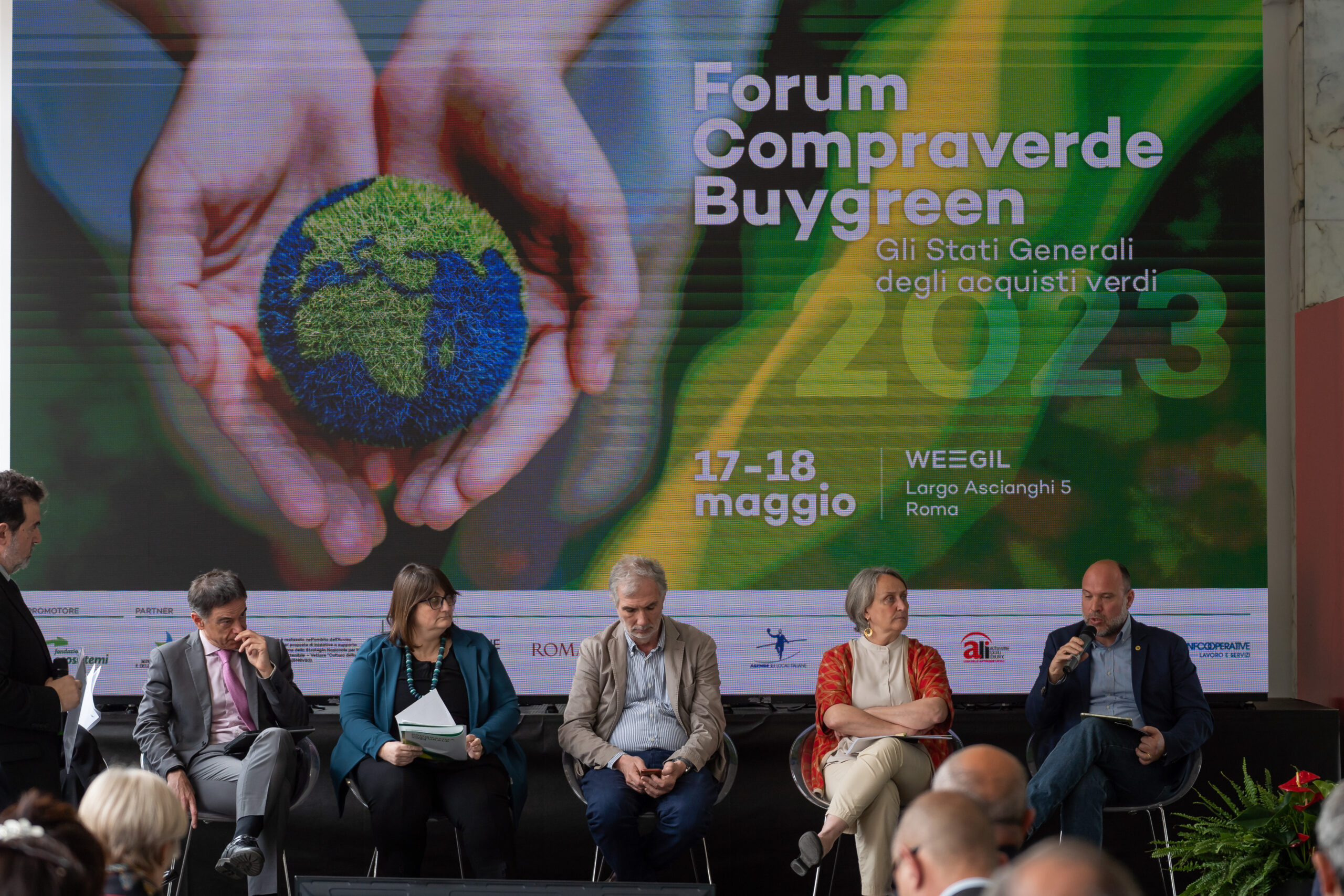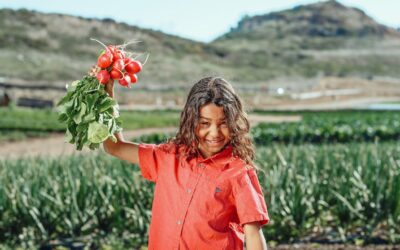Forum Compraverde Buygreen, the main event in Italy and Europe for public and private Green Procurement policies, projects, goods and services, promoted by Fondazione Ecosistemi started today.
The Forum focuses on the fundamental role of GPP in policies for decarbonisation, the circular economy and the protection of biodiversity.
The aim of the opening conference was to combine the new Public Contracts Code, in force since 1 July, which keeps the role of Green Public Procurement and Environmental and Social Criteria intact, with the climate alarm raised by the Sixth Assessment Report on Climate Change.
The first conference of the day, “Change the purchases not the climate”, opened with a greeting sent to the Forum by the Deputy Minister for the Environment and Energy Security Vannia Gava, where she declared:
“Green public procurement is a concrete and effective lever of sustainable industrial policy, also and above all due to the fact that the value of the auction bases of CAM (Minimum Environmental Criteria) contracts is around EUR 20 billion per year. But it is also a winning tool to strengthen the presence of Italian companies on a European and global scale, in a panorama in which our entrepreneurial fabric of large and especially small and medium-sized enterprises (SMEs) in the field of green technologies and circular practices maintains a true leadership. The Ministry of the Environment and Energy Security continues to maintain a high level of commitment on this issue’.
Speakers followed with Sabrina Alfonsi – Councillor for Agriculture, Environment and Waste Cycle of Roma Capitale, Roberta Angelilli – Vice-President of Regione Lazio, Giorgio Zampetti – Director General of Legambiente, Giulio Marcon – Climate Alliance Labour, Cesare Bagnari – Head of the Environment Sector of Confcooperative Labour and Services, Renata Zuffi – President of the Local Agenda 21 Coordination, Elisa Scotti – President of Fondazione Ecosistemi Scientific Committee.
Roberta Angelilli, Vice-President of Regione Lazio, during her speech emphasised the role of the region in the ecological transition.
“Regione Lazio was the first Italian region to approve the ecological transition plan. Therefore, the environment, the circular economy, and the fight against wasting resources are our priorities. The environment can only be protected with responsible behaviour on the part of citizens, but also with very clear guidelines from the institutions. We have a great opportunity, also in financial terms, to support a centrality of the environment in institutional policies and actions. This extraordinary opportunity is the PNRR and obviously the 2021-2027 European planning because at the heart of Community policies and resources is precisely the Green Deal, that is, an ecological approach, a responsible approach to the environment that can direct these resources, these actions to look ahead with sustainable development. Sustainable development, which does not go against development, but is development that respects the environment and the fight against climate change’.
Sabrina Alfonsi – Councillor for Agriculture, Environment and the Waste Cycle of Roma Capitale, who was also present at the opening of the session, gave the Capitoline administration’s point of view on GPP:
“The big step forward taken by the administration was the approval by the Capitoline Council of the memorandum that mandated the offices to set up a working group to apply GPP on all Roma Capitale purchases by 2025. A memorandum that places Rome at the forefront, not only in Italy but internationally, in the challenge of closing the waste cycle and the green economy. At present, the Minimum Environmental Criteria are applied, among other things, in the tender for school catering and the purchase of paper. The big leap forward was made with the recently published three-year Framework Agreement for the management of the Green, financed with 100 million euro, which fully adopts the criteria contained in the memorandum. It also provides for two important actions such as the training of managers and officials in the drafting of acts and tender specifications and constant monitoring of the change in public administration in this direction. We are convinced that with the full application of GPP we will really succeed in revolutionising the public procurement system in Rome”.
Silvano Falocco, Director of Forum Compraverde Buygreen said:
“Change the purchases not the climate is the goal of the Compraverde Buygreen Forum: two days on Green Public Procurement to make public procurement sustainable with environmental and social criteria it is essential that the national recovery and resilience plan is essential that all public administrations do so to strengthen the circular economy and protect biodiversity and mitigate climate change is a task for today and not tomorrow. Italy is first in Europe and must also strengthen its role in European countries’.
News from the Forum came for events with the presentation for the first time of the We Green Catalogue entirely dedicated to companies that make green products to support events.
Regional representatives from Piedmont, Calabria, Liguria, Veneto, Sicily and Sardinia discussed regional strategies for sustainable development and the GPP tool.
The focus was also on the role of Green Procurement in Italy’s 50 Food Policies, with particular reference to collective catering, which in Italy today has a value of 6 billion euros. And still on the subject of Food in the afternoon there will be a working table for the promotion of policies for the introduction of a global approach to healthy and sustainable food in schools with the participation of the European Buy Better Food campaign.
The forum also saw the presentation of the Sustainability Monitor Report (SMR), an annual report on the environmental and social sustainability of the supply chains of major Italian companies, now in its third edition. It is a survey of how the Italian economy is trying to undertake the green transition path promoted by the European Union. Among the main results, it emerged that policy implementations on sustainable procurement are at different speeds or states of maturity. In 2022, there will be no company that has not at least initiated a monitoring and reporting system of indicators related to sustainable procurement. Environmental criteria are used in procurement to a greater extent than social criteria. Training is still an aspect to be improved or even initiated. The energy and raw material availability crisis of 2022, an area covered by the SMR for the first time, has not adversely affected sustainable procurement policies: the vast majority of companies believe that it has accelerated them or at most not affected them.
Forum Compraverde Buygreen is promoted by Fondazione Ecosistemi with the patronage and participation of the Ministry for the Environment and Energy Security, Regione Lazio and Roma Capitale in partnership with Legambiente, Agende 21 Locali Italiane, Confindustria, ALI – Autonomie Locali Italiane, Fairtrade, Confcooperative Lavoro e Servizi.




